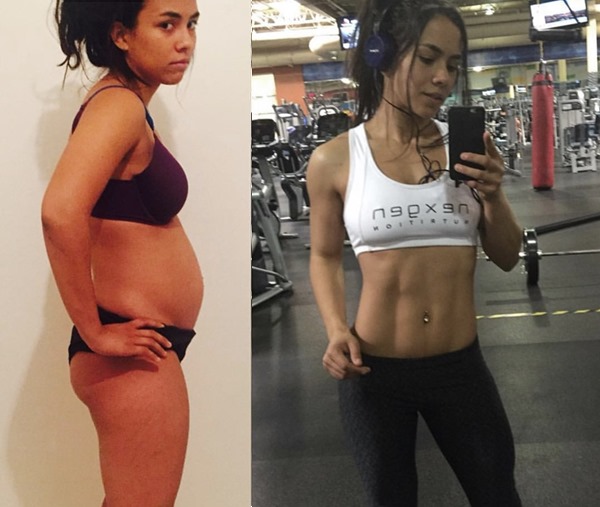Ask most bodybuilders and they’ll tell you training is the easy part. Not that lifting ungodly tonnage and pushing your body to its physical limits day after grueling day isn’t hard work. It’s just that understanding the ins and outs of bench pressing, squatting, curling and the like isn’t totally difficult to master, especially when you’re hungry to improve.
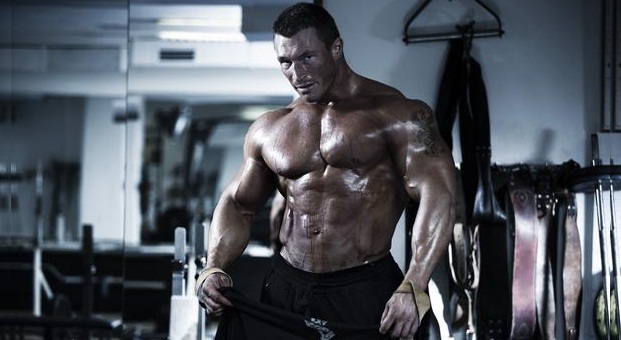
On the other hand, nutrition can be a complicated subject what kinds of carbohydrates and proteins should you eat? What vitamins and minerals are critical? Not to mention meal timing, creatine and the full spectrum of supplements bodybuilders need to keep track of.
It can be overwhelming for someone who just wants to lift and grow. If you’ve got questions, the answers will more than likely be found right here. We’ve compiled the 63 most vital rules of nutrition to help guide you through the minefield of all things related to food and supplements. This comprehensive overview gives you easy-to-follow basic to advanced dictums that have passed the test for accuracy and efficiency.
Whether you want to add mass, get ripped or simply maintain your weight, you’ll find what you need to know, right here.
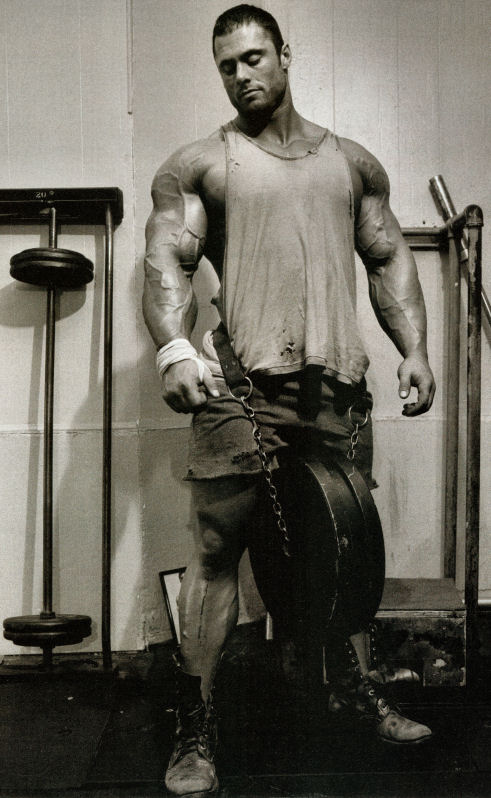
Part One: Your Food Foundation
A bodybuilding diet can be constructed in terms of foods, but it can also be designed around macronutrient composition: protein, carbohydrates and fats. To do this effectively, bodybuilders need to be aware of how many grams of carbs, protein and fat they’re taking in each day.
The amounts, types and ratios of the macros consumed (and when) help assess the general adequacy of any bodybuilding diet. Other nutrients such as water and fiber are crucial for bodybuilders, and they must also be considered.
1 Consume Plenty Of Protein
We recommend that bodybuilders take in at least one gram of protein per pound of bodyweight each day and even up to almost 2 g per pound for hardgainers. Protein needs for individual bodybuilders may vary, but this minimum ensures sufficient amounts with which to build muscle.
If your bodyweight is low or if your caloric requirements for maintenance are high, then you may need even more protein than bodybuilders of comparable size.
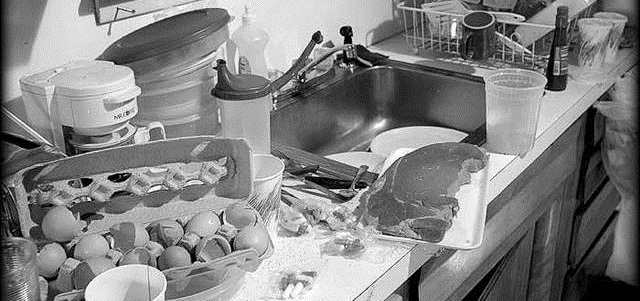 2 Eat Plenty Of Carbs For Energy
2 Eat Plenty Of Carbs For Energy
Your body can use protein, carbs or fats for energy, but when you’re training hard, it preferentially uses carbs. Taking in ample carbs makes it easy for your body to fuel itself, sparing protein and fats for their more specific nutritional uses.
3 Emphasize Slow-Digesting Carbs
Complex carbs are constructed of long chains of sugars. Most, but not all complex carbs are slow digesting. Stress whole-grain products (whole-wheat bread and pastas, oatmeal, brown rice, etc.) and sweet potatoes, which are all slow digesting, as opposed to white breads and white potatoes, as well as sugars, which are all fast digesting. Slow-digesting carbs provide longer-lasting energy and there’s less chance they’ll be stored as bodyfat. During a mass-building phase, strive to take in a minimum of 2 g and up to about 3 g of carbohydrates per pound of bodyweight per day. During cutting phases, reduce total carbohydrate consumption to 1 g per pound of bodyweight.
4 De-Emphasize Simple Carbs
Except after workouts, a bodybuilder should minimize calorie consumption from simple carbohydrates (sugar). Simple carbs can be rapidly absorbed, especially in liquids with little or no fats or solid foods to slow down their passage through the gastrointestinal tract. Significant quantities of simple carbs provide the release of insulin, desirable after a workout, but not at other times, because it can encourage the body to store these sugars as bodyfat. Foods that are high in sugar are among the worst for bodybuilders seeking to keep bodyfat low.
5 Limit Saturated Fat & Avoid Trans Fats
Excesses of these two types of fat increase the risk of heart and other health problems, and they can also undermine bodybuilding efforts. Trans fats are commonly found in processed foods such as crackers, cookies and other baked goods. Saturated fats are prevalent in lower-quality (fattier) cuts of meats.
6 Consume Healthy Fats
Foods containing unsaturated fats, particularly monounsaturates, are excellent for bodybuilders. Don’t buy into the notion that a bodybuilding diet should be low fat–it should only be low in saturated and trans fats. Omega-3 fatty acids, found in fish and flaxseed oils, are important for creating a favorable hormonal environment for building muscle tissue and staying lean.
Other unsaturated fats, such as those found in olives, avocados, nuts, seeds, and olive and canola oils, also provide bodybuilders with numerous muscle-building advantages. Except when cutting up, fats should represent 20%-30% of your daily diet.
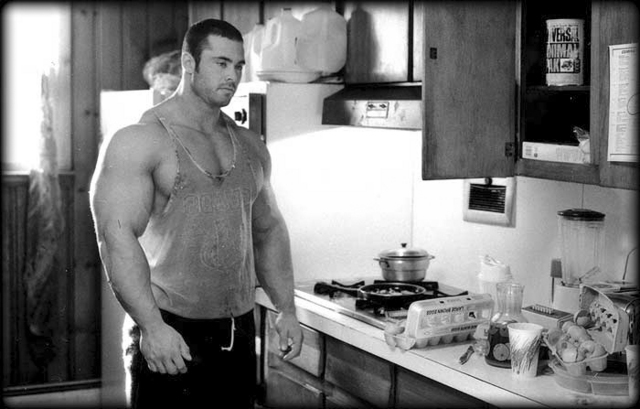
7 Count Calories
When breaking down a bodybuilding diet, macronutrients are often split into percentages. For instance, an offseason dietary recommendation might be to get 50% of calories from carbs, 30% from protein and 20% from fats. To do this accurately, you have to have this valuable information: every gram of carbs has approximately four calories, every gram of protein has four calories and every gram of fat has nine calories. This calorie differential explains why bodybuilders, even those who are not on a low-fat diet, need to pay attention to fat calories, as well as to carbs and protein. For gaining mass, shoot for at least 20 calories per pound of bodyweight. When getting lean, cut calories to 15 or less per pound of bodyweight.
8 Drink Atleast A Gallon Of Water Every Day
Water is essential for overall health as well as for muscle growth. Keeping your body well hydrated benefits everything from protein synthesis to digestion. Steady water intake keeps nutrients moving in your bloodstream and into muscle cells. Water is also a critical source of many minerals. But don’t drink that gallon-plus in one sitting–gulp it during the course of the day. This is especially important for bodybuilders on high-protein diets, as well as those using creatine, fat burners or other supplements that affect hydration. Remember, water keeps your muscles full. It can also help you stay lean, as research has shown that simply drinking two cups of water between meals boosts metabolic rate. Water is the essence of life, and its importance to bodybuilders can’t be overstressed. Drink a pint of water with main meals and try to exceed the daily one-gallon recommendation.
9 Fire Up Your Fiber
Most bodybuilding foods are notoriously low in fiber; yet, bodybuilders need plenty of fiber to make ideal gains. Bodybuilders must get most of their dietary fiber from complex carbohydrates, fruits and vegetables. Strive to take in 30 g of fiber a day, and even more when you’re on a high-calorie diet. If your diet doesn’t provide this amount, then consider daily supplementation with a fiber product.
10 Meat Makes Muscle
All forms of protein are good for bodybuilders seeking to add muscle mass, but lean forms of meat are among the best. Turkey, chicken, beef and other meats have complete proteins, meaning they contain all the amino acids that your body needs–other forms of protein, especially vegetable sources, are incomplete and thus less-concentrated sources of protein.
For best results, We recommend that bodybuilders strive to take in some form of animal protein at almost every meal. Among the best meat choices are chicken and turkey breast, as well as lean cuts of red meat.
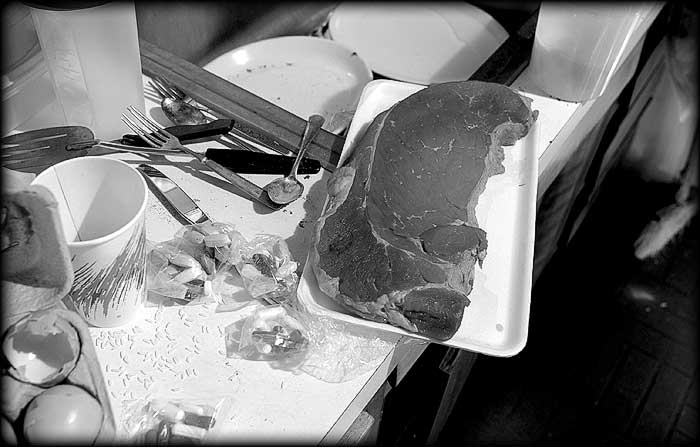
11 Eat Both Fatty & Low-Fat Fish
Fish, an excellent source of protein, should be consumed regularly by bodybuilders. Varying in fat content, some types of fish are high in healthy fats, others are low in fat altogether. Unlike other tissue proteins, though, fatty fish provide a host of benefits to bodybuilders. Salmon and sardines, for example, are excellent sources of omega-3 fatty acids, which support the immune system and assist with muscle recovery and growth, in addition to many other benefits, among them fat loss. Fish that are lower in fat, such as tilapia, also make an excellent source of protein. All bodybuilders, regardless of their phase of diet or training goals, should strive to take in eight ounces of fatty fish at least twice a week.
12 Dairy & Eggs Are Good Protein Sources
Eggs are a versatile, easy-to-cook and easy-to-consume protein source. They’re also relatively inexpensive. Eat just the egg whites if you’re seeking a low-calorie protein source. Use the yolks when you want the benefits of healthy fats, lecithin and other nutrients. Eggs can be boiled in bulk, they’re easily transported, and they make fine between-meal fare. As do eggs, dairy products provide many dietary options. First and foremost, milk proteins–casein and whey–have innumerable nutritional benefits. Nonfat milk is an excellent, cheap and readily available source of protein, calcium and other nutrients. Cottage cheese is the casein fraction of milk and an outstanding bodybuilding protein–you can find low- or nonfat varieties that are relatively inexpensive. Unsweetened yogurt is also a good protein source, and it contains beneficial bacteria to help support the immune system and improve digestive efficiency.
13 Use Grains & Starches As Appropriate
Some bodybuilders shy away from grains such as brown rice and whole-wheat products because they are mostly carbohydrates. Others include liberal portions of pasta, cereal and bread in their diets. In general, you should include grains, but pay attention to how they affect your physique. Some bodybuilders can eat them every day with little consequence. Others need to carefully monitor the quantity they take in. Regardless, all bodybuilders should opt for whole-grain varieties over processed grains.
14 Eat Vegetables Every Day
Vegetables are one of the most overlooked components of bodybuilding nutrition. Many bodybuilders are rigorous about their protein and complex carbohydrate consumption, but lax about eating a sufficient quantity and variety of vegetables. Bodybuilders should strive to take in five or six servings every day. To meet your needs, include more than one serving at a meal. Not only do vegetables provide nutrients that other bodybuilding foods may lack, but they also provide bulk and fiber, helping your body more efficiently process a high-protein diet.
15 Fruit Provides Nutrients & Fiber
Many bodybuilders skimp on fruit, just as they do with vegetables. Fruit is an excellent source of fiber, carbs, antioxidants and numerous other nutrients. Most fruits are a slow-digesting carb source.
Fruit also supplies nutrients that are hard to come by from other bodybuilding food sources. Eat a range of fruits, taking in two or more pieces or servings a day. Fruit makes a great preworkout carb source.

Part Two: Supplemental Advice
Supplements are a key component of your bodybuilding nutrition strategy, but they’re only one component. If you keep that in mind, you can get a tremendous edge from supplementation.
16 Supplement Intelligently
Supplements are a tool to help you achieve your goals. They are not magic pills and potions that will grant your physique wishes. You must use supplements intelligently, with reasonable expectations of what they can do for you. You still have to train and rigorously follow your diet. If you do the hard work and use supplements as they’re designed, then you’ll get the benefits that you seek from them.
17 Use Protein Supplements
Take a protein supplement at least once a day on rest days and twice a day on workout days. If you choose a product from a good manufacturer, this practice can give you an extra 40-80 g of protein per day, and it will help bring you into compliance with our standard protein recommendation (at least 1 g of protein per pound of bodyweight daily). It’s often enough to cause acceleration in muscle growth, usually noticeable within four months. It’s especially important to follow this formula when dieting. Higher protein needs and restricted caloric intake make a protein supplement essential.
Take about 20 g of protein powder, such as whey, within 30 minutes before workouts and about 40 g immediately after workouts. On rest days, consume at least one 40 g protein shake between meals.
18 Take Creatine
Supplementing with creatine can provide bodybuilders with tremendous benefits, including faster recovery from intense weight training, decreased postexercise muscle soreness and increases in muscle mass and strength. Take 3-5 g of creatine immediately before and after workouts.
19 Try Beta-Alanine
This amino acid combines with histidine in the muscle to form carnosine. Muscles with higher carnosine have more strength and endurance. Research shows that bodybuilders taking beta-alanine in addition to creatine gain significantly more muscle than those taking just creatine. Take 1-2 g immediately before and after workouts.
20 Use A Multivitamin Pack
Take a multi with breakfast and dinner each and every day for insurance. Being low in any vitamin can cause breaks in the blueprint of muscle construction. A fast-food world combined with the demands of bodybuilding training can leave you short of a host of micronutrients. That’s bad when you consider that many of them are needed for the things an ironhead is most interested in, such as building muscle and burning bodyfat.
21 Mix Your Antioxidants
Take a mix of antioxidants; a good cocktail has an anticatabolic effect by quenching free radicals formed during and after intense exercise. In your antioxidant regimen, include our top candidates: 400-800 international units of vitamin E, 500-1,000 milligrams of vitamin C and 200 micrograms of selenium. Get the rest from your daily servings of fruits and vegetables.
22 Take Glutamine
Known for its immunity-enhancing properties, glutamine is not only one of the most prevalent aminos in the body, but also one of the most important for bodybuilders. If you are overly stressed from dieting or training, supplementing with glutamine allows your body to maintain its storage supply of glutamine in muscle tissue, enhancing overall muscular growth and recovery. It is also now known to boost growth hormones and metabolic rate. Take 5-10 g of glutamine with breakfast, before and after workouts and before bed.
23 Add Arginine
Try adding arginine to your supplement mix. Arginine, a conditionally essential amino acid, has long been used by bodybuilders for aiding GH release. Studies suggest it speeds wound healing, which isn’t too far removed from what happens in the body after a workout. Arginine also improves blood flow by converting to nitric oxide in the body and enhances the growth and strength of muscles.
Take 3-5 g of arginine before breakfast, 30-60 minutes prior to training and 30-60 minutes before bed.
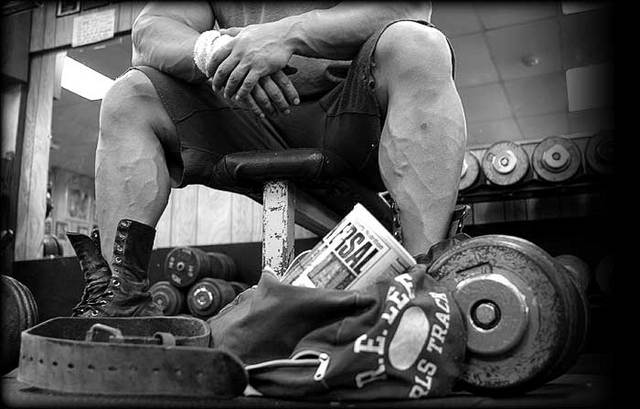
24 Maximize Your Minerals
Take extra calcium and magnesium. If you look at the label of any once-per-day multivitamin, you’ll notice a “mineral gap”–a place where certain minerals should be listed. Even if they’re included, most multis contain only a small percentage of the Daily Value of calcium, magnesium and potassium. Calcium is important for fat-burning metabolism, magnesium for training performance and potassium for muscle cell volume. A once-daily multivitamin simply doesn’t cut it. Correct the situation by taking 1,000 mg per day of supplement-source calcium (or two to three cups of fat-free dairy products), 450 mg of magnesium, and several servings of fruits and vegetables per day (for potassium as well as other micronutrients).
25 Try Tyrosine
Give the amino acid tyrosine a try to prevent burnout caused by lack of sleep, stress and/or the use of thermogenic supplements. Taking 1-4 g of it early in the day is recommended. In studies using military personnel as subjects, tyrosine was shown to increase performance under stress. It is a precursor to fat-burning hormones that stimulate norepinephrine.
26 Don’t Omit Omega-3s
Take a high-potency omega-3 fatty acid supplement such as fish oil. The omega-3s in fish oil capsules (EPA and DHA) are more potent than the one in flaxseed oil at stimulating fat metabolism, reducing muscle catabolism, reducing wear and tear on the joints and improving mood and cognitive performance. Take 1-3 g of fish oil with breakfast and dinner.
27 Take ZMA
ZMA is a specifically formulated combination of zinc and magnesium. The benefits of ZMA supplementation include improved recovery due to enhanced sleep efficiency and increased anabolic hormone levels, as well as greater gains in muscle strength and power. For best results, take ZMA on an empty stomach 30-60 minutes before bedtime. Follow label recommendations for dosage.
28 Repair With Glucosamine & Chondroitin
Glucosamine is the major building block of the solid parts of cartilage. Chondroitin is a major component of connective tissue, especially cartilage. Often, these two ingredients are combined in one supplement. Bodybuilders should use glucosamine and chondroitin for joint injuries, and for prevention. Take 1,500 to 2,000 mg of glucosamine and 800 to 1,200 mg of chondroitin each day. Split that amount into a morning and evening dose.
29 Take Branched-Chain Amino Acids
Branched-chain amino acids, also called BCAAs, include leucine, isoleucine and valine. These three aminos, particularly leucine, are known to literally act like a key that turns on muscle growth processes within muscle fibers. Supplement with 5-10 g at breakfast, before and after training sessions and with a nighttime meal.
30 Vitamin C Can Revitalize You
Vitamin C is a powerful antioxidant that helps in the synthesis of hormones, amino acids and collagen. It also protects immune-system cells from damage and allows them to work more efficiently.
The body cannot store vitamin C, so it must be frequently supplemented. Multivitamins contain C, but additional supplementation will ensure that you don’t have a deficit. Take 1,000-2,000 mg per day.

31 Vitamin E Is Excellent
This antioxidant is especially protective of body tissues. Vitamin E acts as a preservative that prevents many substances from destructive breakdown in the body. Vitamin E also prolongs the life of red blood cells and is necessary for the proper use of oxygen by the muscles. Bodybuilders should supplement with 400-1,200 IU per day. Take 400 IU of E with breakfast and another 400-800 IU with your postworkout shake.
32 Go For Green Tea
You can drink green tea and take it as a supplement for boosting metabolic rate to enhance fat burning and for a plethora of health benefits, such as improved joint recovery. The research shows that the active ingredient in green tea–epigallocatechin gallate–is better absorbed as a supplement than tea. Take about 500 mg of green tea extract before meals two or three times per day and drink green tea as desired.
Part Three: Tricks Of The Trade
These strategies will help you implement programs for your particular goals. As your goals change–from mass building to bodyfat shedding, for example–so should some of your approaches.
33 Eat A Large Breakfast
Bodybuilding diets always recommend a substantial breakfast loaded with protein and complex carbs. Whether you’re cutting bodyfat or building muscle mass, a large breakfast jump-starts your metabolism, providing you with the calories and nutrients you need to get your day started and keep you going.
34 Eat Several Meals Each Day
All bodybuilders should eat as many meals as possible, striving for a minimum of five a day on rest days and seven on workout days. Eating multiple meals serves many functions. It provides your body with a constant stream of micro- and macronutrients to facilitate the muscle-building process.
A continuous supply of calories helps keep your metabolic rate revved up so that you are more likely to use that energy instead of storing it as bodyfat.
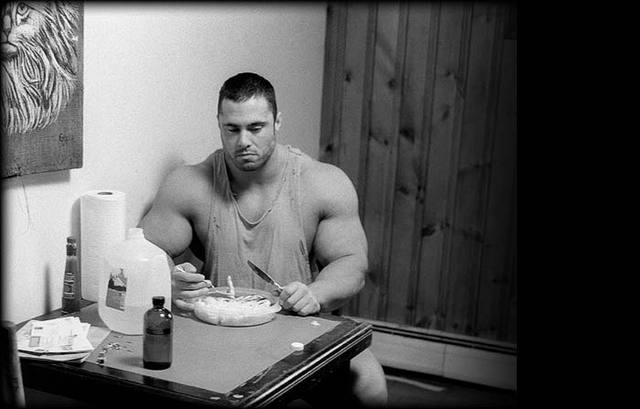
35 Take In Protein At Each Meal
In addition to eating several times a day, it’s a good idea to stay focused on your protein consumption at each meal. By making certain that you take in a minimum of 20 g of protein at each meal, it will be easier to get your daily total of at least 1 g per pound of bodyweight. As an additional benefit, the steady flow of aminos this provides will help prevent your body from burning muscle tissue.
36 Add A Small PreWorkout Meal
The word used to be that you should train on an empty stomach. Research has shown that a small meal, preferably 20 g of protein in a shake, such as whey, and about 20-40 g of slow-burning carbs, like fruit, taken right before training (15 to 30 minutes), will enhance energy for the workout and aid postworkout recovery and growth.
37 Take In Simple Carbs & Protein PostTraining
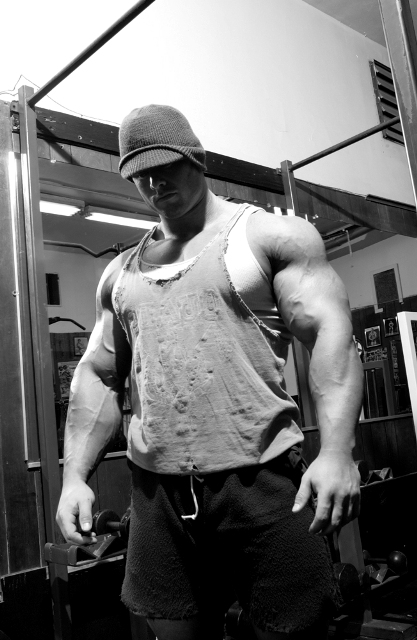 Postworkout is one of the most crucial nutritional windows. At that point, your body needs fast-digesting carbs–50 to 100 g, depending on your size, diet and workout–to replenish glycogen stores depleted by weight training and to increase water uptake and protein synthesis. By adding 40 to 60 g of protein immediately after a workout, you provide your body with the raw building materials for repairing and constructing new muscle mass. A protein shake with simple carbs is ideal at this time because it’s easily digested.
Postworkout is one of the most crucial nutritional windows. At that point, your body needs fast-digesting carbs–50 to 100 g, depending on your size, diet and workout–to replenish glycogen stores depleted by weight training and to increase water uptake and protein synthesis. By adding 40 to 60 g of protein immediately after a workout, you provide your body with the raw building materials for repairing and constructing new muscle mass. A protein shake with simple carbs is ideal at this time because it’s easily digested.
38 Eat A Large Solid-Food Meal Shortly After A PostTraining Meal
At Simplyshredded.com, we think of the posttraining meal as two-tiered. First comes the liquid protein recovery drink and fast carbs (mentioned previously); second, an hour later, comes a large solid-food meal high in protein. If you’re in a mass-building phase, you can consume a significant quantity of slow-digesting carbs at this meal (60 g or more) from such foods as brown rice, sweet potatoes and whole-wheat pasta. If you’re in a cutting phase, you’re better off sticking to vegetables and smaller portions of slower-burning carbs (25 to 50 g). In addition to breakfast, this is one of the most important meals of the day because it helps recovery and enhances growth.
39 Reduce Carb Consumption At Later Meals
Just as we recommend that you take in most of your carbohydrates early in the day and around your workout, we also recommend that you taper off on carbohydrate consumption as the day progresses. Later in the day, especially after your postworkout meals, you have less need for energy-producing calories and they can easily get stored as fat.
40 Boost Protein Before Bedtime
One of the best ways to prevent your body from tapping into muscle stores for energy is to take in a moderate amount of protein shortly before going to bed at night. Twenty to 50 g of slow-digesting protein, consumed before going to sleep, will provide your body with the nutrients it needs to repair and build muscles. A casein protein shake is ideal before bedtime; a good alternative is cottage cheese.
41 Time Mineral-Supplement Intake
It’s important to consider the timing of some mineral supplements. Calcium can interfere with the absorption of zinc, magnesium and other minerals. To avoid this, take ZMA, preferably on an empty stomach, before going to bed. Take calcium with a solid-food meal earlier in the day–breakfast and dinner are ideal.
42 Force-Feed During Mass-Building Cycles
If you want to add size, you have to eat. You need to emphasize quality bodybuilding foods such as chicken, lean red meat, fish, eggs, dairy products, rice and potatoes, but you can also use foods and supplements that are easier to get down. This is an excellent time to consume mass-gaining beverages such as protein shakes (with or without carbs). You can even add an occasional quart of nonfat milk to your diet. Liquids make it easier for you to take in the calories you need for adding bodyweight. Casein protein shakes between meals are ideal, as research shows they make you feel less full than whey protein.
43 Keep Calories Moderate While Stripping Bodyfat
Often, bodybuilders make the mistake of reducing calories too drastically when they try to cut bodyfat. With too few calories, the body turns to available energy sources, and one of those is muscle mass, which is broken down to use for energy. If you normally eat 3,000 calories for bodyweight maintenance, you should only reduce calories to 2,700 or 2,500 for bodyfat reduction. Going lower will reduce muscle mass in addition to bodyfat.
44 Keep Food Volume Up While Stripping Bodyfat
While maintaining a moderate caloric intake, you should also eat bulky foods. Foods such as vegetables are high in volume but low in calories. (They’re also dense in nutrients.) Bulky foods help keep you full and help your body process the high-protein meals associated with bodyfat cutting phases.
Eating plenty of protein and avoiding feelings of hunger are important aspects of maintaining muscle mass while stripping bodyfat.
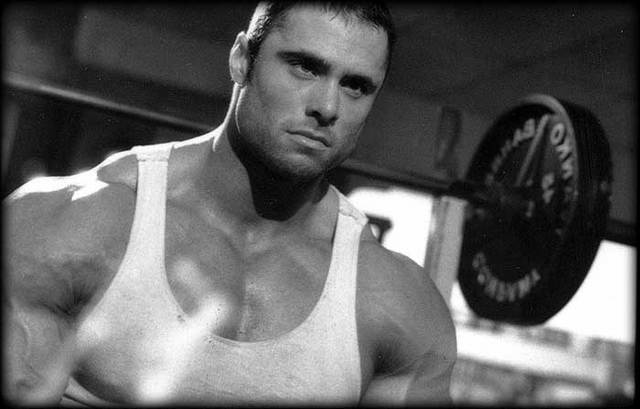
45 Never Go Hungry
Bodybuilders, even those on bodyfat reduction diets, should learn to use the feeling of hunger as a warning sign of the need for food energy. Hunger means that your body is tapping into your muscle stores and burning them as energy. If you’re in a bodyfat-stripping phase, eat basic bodybuilding foods high in protein and complex carbs when you feel hungry. If you’re in a mass-gaining phase, you have a little more latitude–take in the foods that serve your current needs, keeping your protein requirements in mind.
46 Avoid Junk Foods & Processed Foods
The temptations are everywhere–soft drinks, fast food, chips. You must learn to cut out these obvious sugary and fatty foes (even when you’re hungry). Empty calories of all kinds dominate the American palate, especially in social situations, but successful bodybuilders know how to chew the fat without eating it. White-flour products (doughnuts, white bread, etc.) are particularly weak for your physique. Even lemonade may be more sugar than real lemon. Processed cold cuts, with their nitrates and preservatives, are far from true lean meat. Learn the difference.
47 Use Cheat Foods As Part Of Your Diet Strategy
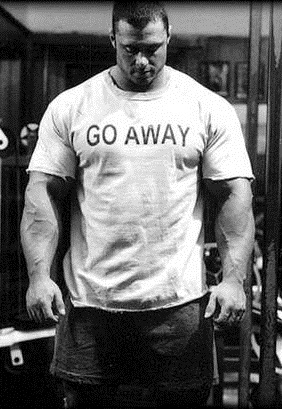 On the surface, this may seem to contradict the previous point, but when implemented properly, it doesn’t. The mindless consumption of junk and processed foods destroys bodybuilding progress faster than almost anything else does. Judicious selection of a cheat food, however, can help keep you sane and help ensure your adherence to your overall diet strategy. Cut out junk food that you don’t crave. If you have a craving, feed the beast, but keep it moderate. If doughnuts are your thing, allow yourself a Sunday-morning Krispy Kreme. Have a slice of pizza occasionally. Just set limits and adhere to them.
On the surface, this may seem to contradict the previous point, but when implemented properly, it doesn’t. The mindless consumption of junk and processed foods destroys bodybuilding progress faster than almost anything else does. Judicious selection of a cheat food, however, can help keep you sane and help ensure your adherence to your overall diet strategy. Cut out junk food that you don’t crave. If you have a craving, feed the beast, but keep it moderate. If doughnuts are your thing, allow yourself a Sunday-morning Krispy Kreme. Have a slice of pizza occasionally. Just set limits and adhere to them.
48 Schedule Cheat Days
Cheat days aren’t just for mental health. They’re important for your physiological system, as well. The human body has an internal register that strives for homeostasis, the balance of all internal systems. You need to jack things up and slow things down occasionally to keep the pump primed, and that’s when cheat days come in. Schedule them to suit your needs, whether that means once a week or once a month.
49 Cycle Between High & Low Carb Days
One excellent way to keep your metabolic rate up and your body burning fat is to change the amount of carbohydrates you eat on a daily basis. Eating high carbs all the time allows your body to readily store them as bodyfat. Eating low carbs all the time encourages your body to tear down muscle tissue for energy. To get the best of both worlds–keeping your muscle while avoiding bodyfat–schedule a higher-carb day after every three to five low-carb days.
50 Use Rest Days As Nutrition Days
Often, bodybuilders think of a rest day as time away from bodybuilding. Nothing could be further from the truth. You don’t grow when you train; you grow from your training while you’re recovering. Your body can effectively recover when it’s not under assault by weights. A nontraining day is also an ideal opportunity for you to load up on bodybuilding foods, but be vigilant with your diet. Don’t take in more calories than you need. Focus on lean protein and quality slow-digesting carbs, and give yourself a huge edge in building muscle mass.
51 Plan Ahead
Sometimes work hours, school schedules or travel can disrupt your diet. Eliminate nutritional backsliding by planning ahead. Preparing meals the night before, utilizing Tupperware and carrying meal-replacement powders or protein bars with you are just a few simple tricks to help you fulfill your nutritional requirements no matter what your situation demands. Some experienced bodybuilders cook a week’s worth of meals in one night, so that they’ll be ready to rock ‘n’ roll when time gets tight.
Freezers, canned foods, microwaves, plastic storage bags, premixed supplements–these are all tools to keep you stocked with mighty meals when you’re on the go.
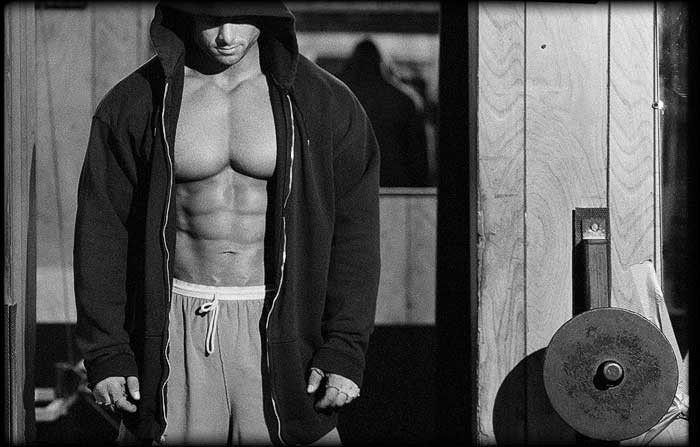
52 Focus On Your Diet Even More Then Your Training
In two very distinct bodybuilding populations–competitors and hardgainers–nutrition is more critical than training. Pros understand this, and they devote far more time each day to their nutrition than they do to their training. Hardgainers, unfortunately, have trouble learning this lesson. If you want to add muscle mass, you have to give your body the nutrients and calories it needs for growth. You can stimulate your muscle mass all you want, but it won’t grow if you aren’t giving it the necessary raw materials. Make nutrition priority one if you’re a hardgainer.
53 Don’t Think In Absolutes
Because bodybuilding is an extreme sport, its practitioners tend to be extreme thinkers. When it comes to training and nutrition, many bodybuilders adopt an all-or-nothing philosophy. Often, this can run counter to long-term goals. If you’re on a diet and you’re effectively stripping bodyfat, don’t try to rush the process by cutting calories or carbohydrates down to nothing. When you’re in a mass-building phase, you must force-feed your body to a certain extent, but adding thousands of calories more than you need for maintenance will only encourage bodyfat storage. If life events force you to miss a meal or two, don’t beat yourself up about it. The negative hormone response you generate from stressing out is far more harmful to your overall goals than a lost opportunity to take in 500 calories.
54 Increase Calories Gradually When Entering A Mass-Building Phase
One mistake many bodybuilders make when they enter a mass-building phase is to add too many calories too quickly. If you’re eating 3,000 calories a day for bodyweight maintenance, and you want to increase your calorie consumption to 4,000 to add more muscle mass, the most effective strategy is to do so in increments of 300-500 calories. Allow your body to adapt to this new caloric level for seven to 10 days before bumping up calories a second time. This slow approach to increasing calories allows your body to more effectively use this additional energy rather than storing it as bodyfat.
55 Listen To Your Body
We’re not all alike. Individual bodies handle nutrients differently. For instance, some people are lactose intolerant (can’t digest milk properly), and others could drink a dairy’s worth of milk without discomfort.
If a particular food or supplement doesn’t agree with your body, back off and try something similar that’s compatible. Find what works best for your body and stick with it. Learn to trust yourself.
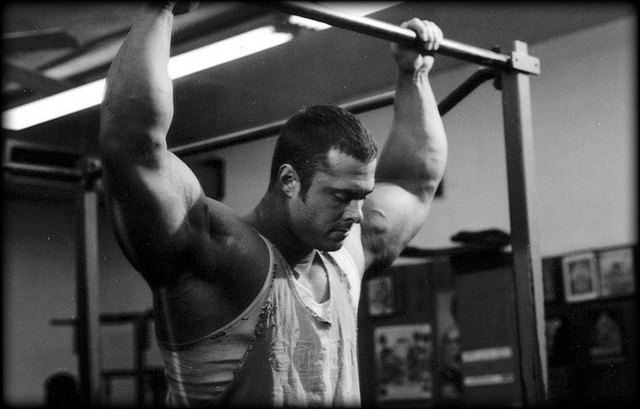
56 Choose Protein Sources That Work Best For You
Learn what protein foods give you the best results. Some bodybuilders swear by red meat, saying they feel stronger when they eat it, perhaps because of the iron, zinc, creatine, etc., it contains. Others prefer fish or chicken, saying they have trouble digesting red meat. Choose the protein sources that work best for you, and use the same logic in making your other nutritional choices, as well.
57 Learn To Read Labels Correctly
Watch for deceptive practices (sometimes “low fat” and “low in sugar” don’t mean what you think they do) by reading the fine print closely. Know the differences between the types of carbohydrates listed on panels, and keep in mind that not every calorie is created equal. Do the math. Pay attention to the number of servings per package, as well as the breakdown of macronutrients, and how the nutritional information adds up. Get the label lingo down.
58 Don’t Use Bodyweight As Your Primary Guide
Unless you’re angling to make a certain weight class for a competition, don’t put too much stock in bodyweight to gauge progress. Goals are important, and sometimes if you aim to lose or gain a specific number of pounds, bodyweight can provide some clear-cut guidance. Ultimately, however, bodybuilders concern themselves with body composition and appearance more than with what the scale tells them. We advise you do the same.
Use a mirror or bodyfat measurements (although these can be misleading sometimes, too) to judge your progress. That’s how the big boys do it. Also, ask for help, but only trust the eyes of a friend who will tell you the truth, not one who will tell you what you want to hear.
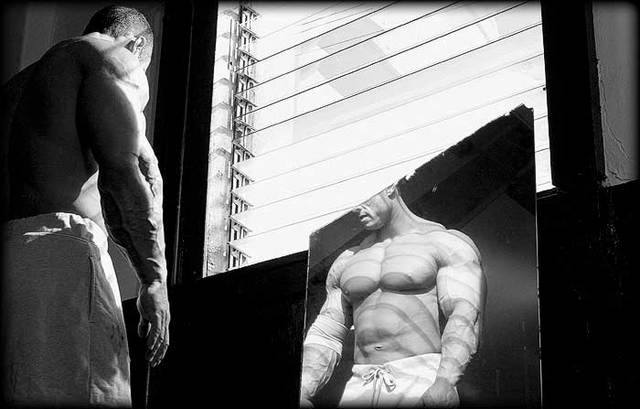
59 Don’t Avoid Salt
Some bodybuilders follow a low-sodium diet all the time. But that can work against you. Sodium is essential for muscle function. It also is critical for creatine uptake into muscle cells. Don’t overdo it by salting every meal, but don’t go out of your way to keep every meal low in sodium.
60 Reduce Unwanted Fat During Cooking
Besides careful food selection, the best way to control the amount of fat you’re taking in is through careful preparation. Avoid adding unwanted fats to the foods you’re preparing. Also, trim off all visible fat and blot off grease and oil from cooked foods. Grilling is a better option than frying, as the fat drips off.
61 Keep It Clean
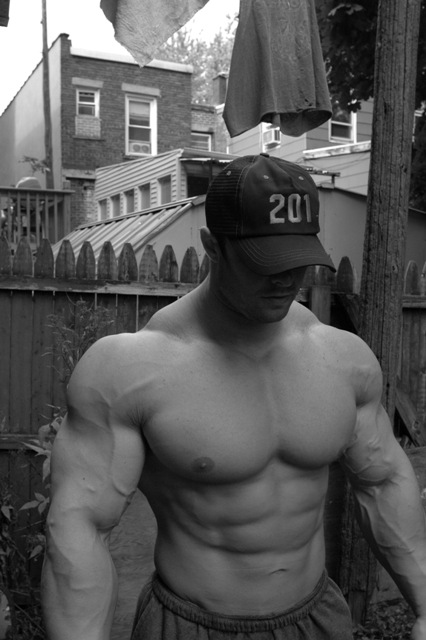 Food poisoning is one of the quickest ways to undo weeks of bodybuilding gains. Make certain that the food you’re taking in is the best quality. Check expiration dates on everything that you buy. Thoroughly cook all meats so that harmful bacteria are destroyed. Thoroughly wash surfaces with bleach or other cleaning solutions so that you don’t contaminate cooked or ready-to-eat foods.
Food poisoning is one of the quickest ways to undo weeks of bodybuilding gains. Make certain that the food you’re taking in is the best quality. Check expiration dates on everything that you buy. Thoroughly cook all meats so that harmful bacteria are destroyed. Thoroughly wash surfaces with bleach or other cleaning solutions so that you don’t contaminate cooked or ready-to-eat foods.
62 Remeber That Everything Works But Nothing Works Forever
All bodybuilding tips and strategies are designed to give you an advantage over what you were previously doing. But your body seeks homeostasis, and when you continue to do the same thing for an extended period, your body will eventually acclimate to it. Once you plateau, it’s time to change things. Move on to your next strategy or phase.
63 Checkout Simplyshredded.com Often
Sounds like self-promotion, but it’s more like self-preservation. With so much contradictory and sometimes downright false information out there, you need a source you can trust to provide the bottom line on all things bodybuilding.
We draw on the best talents in the industry to deliver the untainted truth about supplements and nutrition every month, and our experts maintain a vigilant watch on new research and trends. Guidelines change, products evolve, new studies reveal fresh ideas for building and refining physiques–whatever the situation, we’ll make sure you’re apprised of new developments. And don’t be afraid to contact us. We’re here for you.
Author: Greg Merrit & Jim Stoppani, PHD
References:
COPYRIGHT 2010 Weider Publications
COPYRIGHT 2010 Gale, Cengage Learning
Flex Magazine






